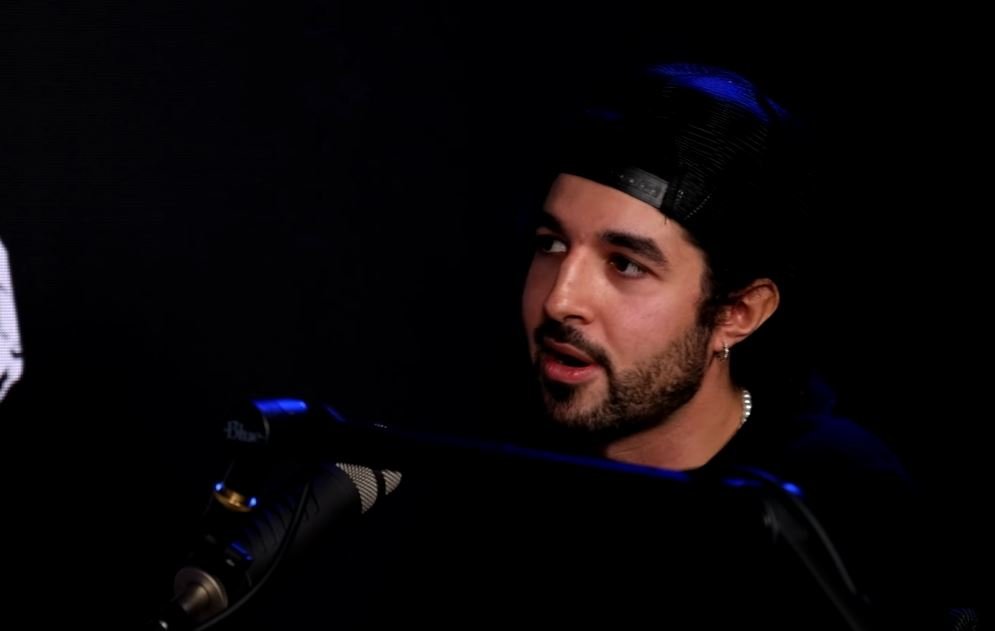
By 2024, Julian Petroulas has remarkably transformed his life from a teenage dreamer with a love of music into a $45 million financial landscape. At 16, he left school to follow his intuition, a bold decision that proved incredibly successful. He currently lives in Dubai, where he oversees artists, manages investments across continents, and shares his daring business ventures with over 400,000 Instagram followers.
Julian’s ability to bring people together and promote experiences began with music events in his hometown. His boutique firm, Over Agency, had a significant impact on Timmy Trumpet and William Singe’s career advancement. He branded artists in addition to managing them, creating engagement tactics that were remarkably reminiscent of corporate digital campaigns but customized for undeveloped talent. William Singe’s following grew from 5,000 to over 6 million thanks to this tactic.
Table:
| Field | Detail |
|---|---|
| Name | Julian Petroulas |
| Date of Birth | June 4, 1992 |
| Age | 33 years old |
| Birthplace | Sydney, Australia |
| Nationality | Australian |
| Residence | Dubai, United Arab Emirates |
| Profession | Entrepreneur, Investor, Manager |
| Notable Work | Founder of Over Agency; Manager of William Singe, Timmy Trumpet |
| Assets | Penny Lane Bali, 1.1 hectares land, tech stocks, Dubai real estate |
| Social Media | Instagram: @julianpetroulas, X: @jay2p |
| Net Worth (2024) | Estimated $45 million |
Julian significantly increased artist visibility and revenue by utilizing digital tools early on. Particularly during the social media boom, his instinct to combine content with carefully chosen captions and well-chosen images proved to be incredibly adaptable. Petroulas quickly shifted his focus from music to e-commerce and real estate investing. He says his Shopify store used to bring in $2 million every month. Although that figure caused some controversy, it also enhanced his reputation as a successful marketer.
His forays into Bali real estate, particularly the fanciful Penny Lane eatery, generated both praise and criticism. On YouTube, he demonstrated how an investment of $7.5 million became $11 million in just 48 hours. These statements served as branding tools in addition to being financial triumphs. Fans were drawn in and regulators were unnerved by the content, which was designed to impress and provoke.
Julian has encountered many challenges in the last few months. After he filed a lawsuit against a French seller over a contentious land deal and received extensive media coverage, Indonesian immigration banned him from entering the country. Julian and his team have used calculated legal filings to portray the negative press as retaliatory, pointing to a smear campaign that coincided noticeably with the court case.
Julian maintains a remarkable level of optimism in spite of these obstacles. He maintains that he still owns the Penny Lane restaurant, which he says brings in millions of dollars a year, and that he still has the lease rights to the 1.1-hectare property. He lives in Dubai, has legitimate short-term visas for oversight visits, and feels the government moved quickly without verifying facts. He has been very clear in his communication on this point.
For his followers, Julian’s story illustrates the pros and cons of the digital age. Influence and investment opportunities came with his prominence, but so did criticism and backlash. His social media posts became more daring during the controversy, showcasing his accomplishments and taking aim at detractors head-on. His devoted audience was energized by the move, but regulatory officials were not pleased.
It’s impossible to avoid comparisons to people like Andrew Tate or Logan Paul. These are men who garnered both praise and criticism for transforming media storms into career-boosting opportunities. Julian’s journey seems comparable—strategic, bold, and occasionally divisive. He keeps advocating for an aspirational way of living that emphasizes independence, hustle, and digital leverage.
For a generation that grew up with YouTube and Instagram, Julian has subtly reshaped entrepreneurship through his public narrative. It’s especially creative that he is willing to share his tactics, which range from using AI-powered marketing tools to building digital brands for artists. His openness in sharing the strategies that underpin his wealth is just as impressive as its magnitude.
His experience in Bali points to a wider change as international investment regulations become more stringent. Cross-border investors and influencers need to exercise caution because the legal system is frequently unprepared for highly visible business owners. The way that future foreigners handle real estate transactions in nations with stringent foreign ownership regulations may be influenced by Julian’s case.
Julian maintains his composure as the legal storm rages. He keeps starting new companies, working with artists, and making investments in ventures with significant growth potential. Julian’s story serves as both a guide and a reminder to young business owners navigating the unstable economy of today: perseverance, ingenuity, and forbearance are necessary for success.
